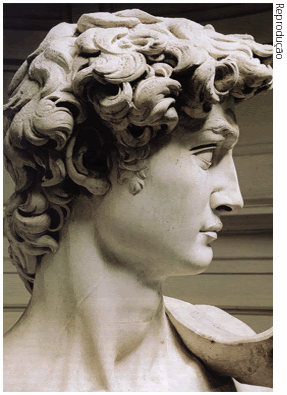"Adeste Fideles" or "O Come All Ye Faithful" is a Christmas carol which is commonly believed to have been composed by John Francis Wade in approximately 1743.
John Wade was a Catholic layman and a music teacher, who fled England after the Jacobite rebellion of 1745. He went to the English College, Douai, which was a refuge for British Catholics after the abdication of James II in 1688.
The words may therefore be attributed to Wade or to others, but certainly originate amongst exiled Jacobite Roman Catholics of the 1740s. The earliest existing manuscript shows both words and tune. It was published in the 1760 edition of Evening Offices of the Church. John Francis Wade included it in his own publication of "Cantus Diversi" (1751).
The title "Adeste Fideles" is usually reserved for the Latin original and "O Come All Ye Faithful" for the English translation.
It is sometimes referred to as the "Portuguese Hymn" as it was often sung in the Portuguese Embassy in London where Vincent Novello was organist.
The lyrics and music of "Adeste Fideles" have also been attributed to King John IV of Portugal – D. João IV, a musician himself and an excellent composer. It has also on occasions been erroneously attributed to Saint Bonaventure (13.th century).
In the United Kingdom it is most often sung today in an arrangement by Sir David Willcocks, published in the Oxford Carols for Choirs series.
The final verse "Yea, Lord, we greet thee, born this happy morning" is generally omitted before Christmas day, a notable exception being the traditional midnight mass.
 "Venite adoremus Dominum."
"Venite adoremus Dominum."
First stanza (Latin and English)
Adeste fideles, læti, triumphantes
(Be present, faithful, joyful, triumphant)
Venite, venite in Bethlehem
(Come, come into Bethlehem)
Natum videte, Regem angelorum
(Behold the Newborn, King of angels)
Venite adoremus, venite adoremus
(Come, let us adore; come, let us adore)
Venite adoremus Dominum.
(Come, let us adore the Lord).
Latin
Deum de Deo, Lumen de Lumine,
Gestant puellæ viscera,
Deum verum, Genitum non factum.
Venite adoremus, venite adoremus,
Venite adoremus Dominum
In grege relicto, Humiles ad cunas
Vocati pastores approperant.
Et nos ovanti, Gradu festinemus;
Venite adoremus, venite adoremus,
Venite adoremus Dominum
Cantet nunc Io chorus Angelorum;
Cantet nunc aula cælestium:
Gloria in excelsis Deo.
Venite adoremus, venite adoremus,
Venite adoremus Dominum.
Stella duce, Magi Christum adorantes,
Aurum, tus et myrrham dant munera.
Iesu infanti corda præbeamus;
Venite adoremus, venite adoremus,
Venite adoremus Dominum.
Æterni Parentis splendorem æternum
Velatum sub carne videbimus:
Deum Infantem, pannis involutum,
Venite adoremus, venite adoremus,
Venite adoremus Dominum.
Pro nobis egenum et fœno cubantem
Piis foveamus amplexibus:
Sic nos amantem quis non redamaret?
Venite adoremus, venite adoremus,
Venite adoremus Dominum.
Ergo qui natus die hodierna,
Iesu, tibi sit gloria,
Patris æterni Verbum caro factum.
Venite adoremus, venite adoremus,
Venite adoremus Dominum.
Adeste, fideles, adoremus Dominum
Adeste, fideles!
English
O come all ye faithful
Joyful and triumphant
O come ye, o come ye to Bethlehem
Come and behold Him
Born the King of Angels
O come let us adore Him (3×)
Christ the Lord
God of God
Light of Light,
Lo, he abhors not the Virgin's womb;
Very God, begotten not created.
O come let us adore Him (3×)
Christ the Lord
See how the shepherds,
Summoned to His cradle,
Leaving their flocks, draw nigh to gaze;
We too will thither
Bend our joyful footsteps;
O come let us adore Him (3×)
Christ the Lord
Lo! star led chieftains,
Magi, Christ adoring,
Offer Him incense, gold, and myrrh;
We to the Christ Child bring our hearts' oblations.
O come let us adore Him (3×)
Christ the Lord
Splendour Immortal,
Son of God Eternal,
Now hidden in mortal flesh our eyes shall view.
See there the Infant, swaddling clothes enfold him.
O come let us adore Him (3×)
Christ the Lord
Child, for us sinners
Poor and in the manger,
We would embrace Thee, with love and awe;
Who would not love Thee, loving us so dearly?
O come let us adore Him (3×)
Christ the Lord
Sing! Choirs of Angels;
Sing in exaltation,
Sing, all ye citizens of heaven above;
Glory to God, in the highest
O come let us adore Him (3×)
Christ the Lord
Yea, Lord, we greet thee!
Born this happy morning,
Jesus, to Thee be glory given;
Word of the Father,
Now in flesh appearing:
O come let us adore Him (3×)
Christ the Lord.
(Adapted and edited from Wikipedia)

 My best wishes to you all! May you all have a marvellous 2007!
My best wishes to you all! May you all have a marvellous 2007!




























































